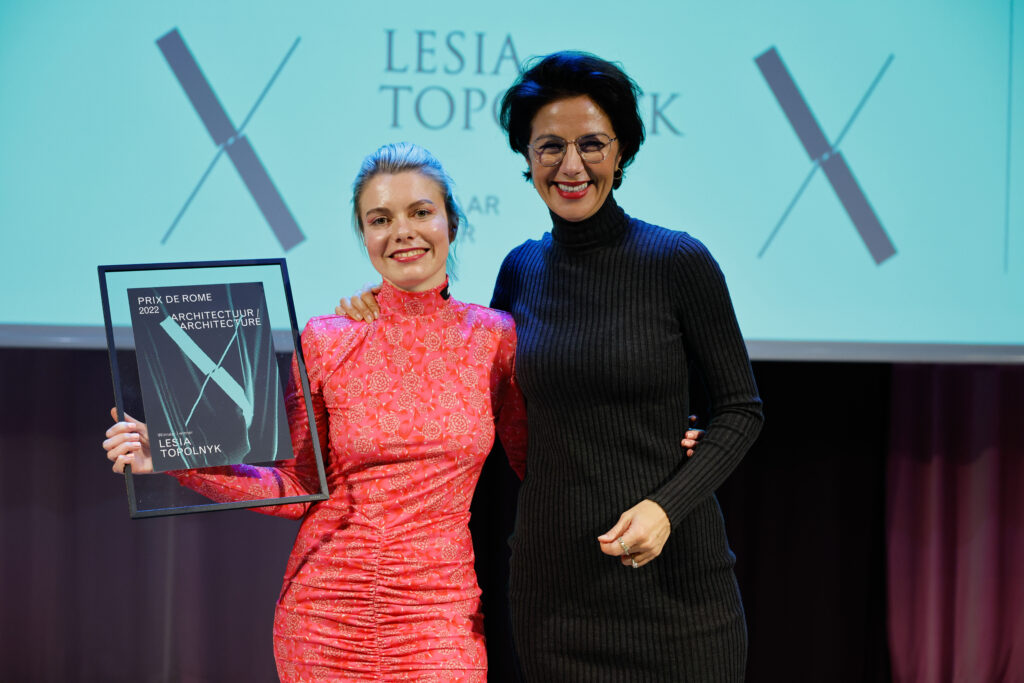
The Prix de Rome is the oldest and most prestigious Dutch award for visual artists and architects below the age of 35.
Lesia's work has been published in ArchDaily, E-Flux, STIRworld, NRC, Het Financieele Dagblad Persoonlijk, Metropolis, Mister Motley, Blauwe Kamer, AD, and more.
Honors & Awards:
2024 - Residency at The Savannah Centre for Contemporary Art (SCCA) and Studio of Ibrahim Mahama (Red Clay), Ghana
2024 - Residency on Governors Island, New York
2023 - IABR Agent of Change
2023 - Financieele Dagblad Top 50 Talent 2023
2022 - Winner Prix de Rome, the Netherlands
2020 - Talent Grant, Creative Industries, Netherlands
2020 - Young Talent Architecture Award, nomination (by the Fundació Mies van der Rohe and the EU Commission)
2019 - Winner Archiprix Nederland
2019 - Winner Archiprix International
2019 - Winner Tamayouz International Award
2014 - AHK Talent Grant
Selected Exhibitions:
2025 - Solo exhibition at MAGAZIN, Vienna, Austria (upcoming)
2025 - Lisbon Architecture Triennale, Portugal
2024 - Work presentation at RedClay (Studio of Ibrahim Mahama), Ghana
2024 - Mobile installation, exhibition, Governors Island - Lower Manhattan, New York
2024 - OMI, "Rotterdam Culture City", alongside significant works by OMA and West 8.
2024 - International Architecture Biennale Rotterdam (IABR)
2022 - Prix de Rome, NI, Rotterdam
2022 - Architecture Triennale, Lisbon
2022 - New European Bauhaus, Brussels
2021 - Dutch Design Week
2021 - Biennale, Venice
2020 - Dutch Design Week
2019 - Biennale, Santiago
2019 - Archiprix International
2019 - Archiprix Netherlands